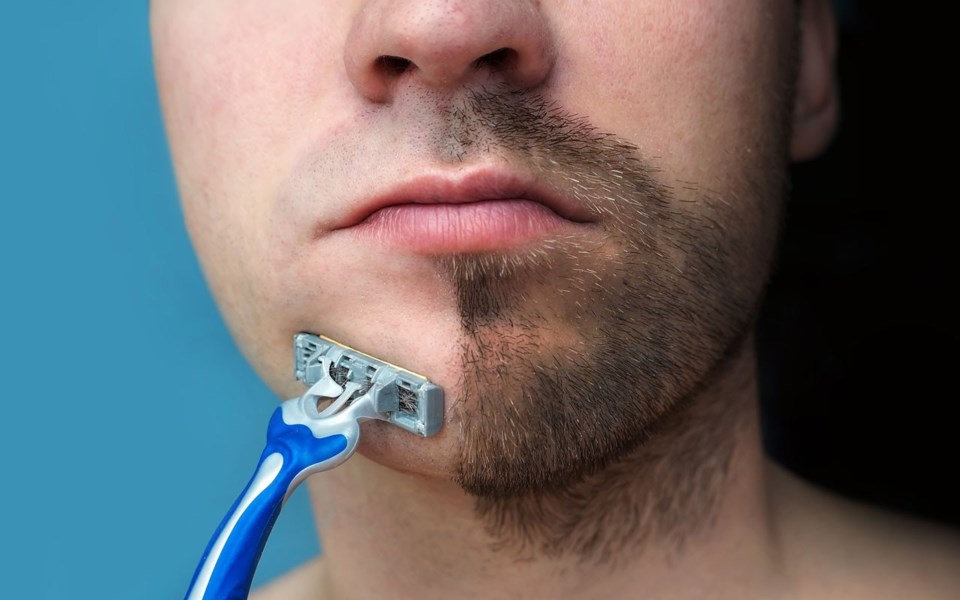Whistler is often fondly referred to as a bubble. For me, that bubble is full of friendly, accepting people with, more often than not, pretty progressive views.
But every once in a while, something comes along to pop that ideal illusion.
Last week, that something was a Gillette commercial.
The nearly two-minute commercial turns around the razor company's recognizable slogan, asking, "Is this the best a man really can get?"
It portrays men looking at themselves in the mirror before cutting to depictions of troubling behaviour, like men harassing or talking over women, and an endless row of dads standing over steaming barbecues saying "boys will be boys," as children wrestle on the grass.
Eventually, a voice acknowledges, "something finally changed," as a montage of news anchors talking about sexual-assault and sexual-harassment allegations fills the screen.
The narrator says, "There will be no going back, because we believe in the best in men." A dad steps out from behind the grill to separate the kids' tussle, explaining, "that's not how we treat each other." One man stops his friend before he can catcall a woman walking down the street. The ad aims to inspire men to stand up to toxic masculinity and set a good example for the next generation.
Immediately after the ad dropped, a group of (mostly) men collectively lost their minds on the internet, accusing the razor company of vilifying an entire gender—including here in Whistler.
A member of the local Whistler Winter Facebook group posted the video, praising it as "a step in the right direction by advertisers."
Clearly, not everyone agreed. Several commenters expressed opposition to the ad, including one who accused Gillette of vilifying "natural male behaviour through the lens of toxic feminist misandry," (The same Facebook user, if I'm remembering correctly, who commented on a Pique story about local International Day of the Girl celebrations asking when International Day of the Boy is ...)
I won't continue on, but feel free to head to Facebook to read through the exhausting back-and-forth.
Reading those comments is just a reminder that my beloved bubble, and our wider society, isn't always as equal or as open-minded as the majority of interactions I experience day-to-day might suggest.
It's clear none of the men offended by this ad have ever walked to their car clutching their keys in their hand, just in case the guy walking a few metres behind them in an empty parking lot wasn't just heading in the same direction. They've never had to decide whether to ignore or respond to someone whistling at them on the street, or felt the discomfort of being asked to explain why they didn't want to accept a drink, a phone number or a ride home from a stranger at the bar. Or even put themselves in the shoes of someone who has.
No one is trying to say all men, or masculine traits for that matter, are toxic. From my perspective, all Gillette is trying to say is that the kind of troubling behaviour shown in the ad exists, and when it does, the majority of men who know better should stand up and say something, rather than turning a blind eye, or worse, making excuses for their peers.
"We really wanted to shine a light on some of the bad behaviors that were happening in society, but more importantly on some of the good ones because that's where we know most guys are really at. There are a few bad behaviors that we wanted to call out, so that we're all holding ourselves to a higher standard because we think that's better for guys, women and society," explained Damon Jones, vice president of global communications and advocacy at Gilette's parent company Procter and Gamble, to Forbes Magazine.
Unfortunately, I think the backlash has made it clear that it's a message many men aren't ready to hear.
Some commenters also questioned whether corporations or brands should be trying to take a social stand in an advertisement, accusing them of virtue signalling, or inauthentically jumping on a social issue to drive sales.
I argue that they should. With so many options in our consumer-based economy, we're constantly being told that every dollar we spend is a vote for the kind of world we want to live in. I want to support brands that use their considerable platforms to take a stand when they see an injustice—even if it means alienating a portion of their consumers, as backlash to both Gillette's new ad and Nike's 2018 ad featuring Colin Kaepernick proves.
Although, if Gillette really wants to make a social impact—even if all they want is to take my money—they can stop charging more for women's razors than they do for men's. Don't they know there's still a wage gap? But that's a different conversation.




